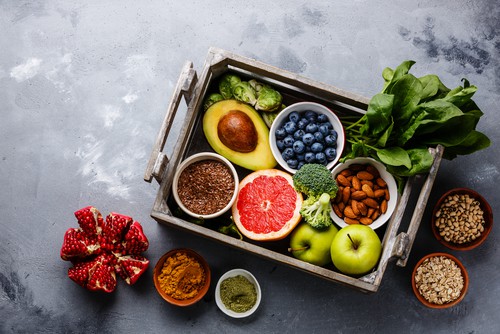Weight control depends on many variables. Therefore, weight loss processes vary from person to person. Stress and the relationship with food can be counted among these variables. However, sometimes the situation is different.
Are you one of those who are feeling hungry after eating? If you are, you may need to develop another awareness of your body. There may be many different reasons why you feel hungry after eating. The name of this habit in the medical literature is reactive hypoglycemia.
There can be many reasons for this feeling, be it hormone changes, your lifestyle, stress or your diet, but it is possible to discuss insulin resistance as a major reason. In this article, we have compiled how to avoid feeling hungry after eating and 6 reasons you feel this way.
6 Reasons for Feeling Hungry After Eating
1. Content of Your Meals
Increasing the amount of protein in your meals is very important to prevent you from feeling hungry after eating. High protein keeps you full for a long time and helps you lose weight. Many types of research show that high protein meals are more effective in stimulating the release of cholecystokinin, the peptide, a glucagon-like peptide which provides satiety.
However, if you have a diet that consumes less fibrous foods, you may be hungry frequently. Fibers are derivatives of carbohydrates that slow down the rate of digestion and emptying of the stomach. While fiber is digested more slowly in the digestive tract, it also stimulates the release of appetite-reducing hormones.
Products such as steak, chicken, and turkey are high in protein, while fruits, vegetables, and oily seeds such as nuts, almonds, and grains are also good sources of fiber. While the content of your meals accelerates your weight loss process, it also helps to reduce your feeling of hunger after eating.

2. The Quantity of Your Meals
If you are trying to reduce the number of your meals to lose weight, not achieving enough satiety may be one of the reasons you feel hungry. If you feel hungry after eating, you can regulate your portions without increasing the calorie amount of your meals.
By trying to avoid complex carbohydrates, and eating products such as greens, yoghurt, cucumber, and soup help increase your satiety because the amount of water is high. At the same time, consuming water before meals can also help increase your feeling of fullness.
3. Leptin Resistance
Hormonal problems may be one of the reasons you feel hungry after eating. Leptin is one of these hormones. Leptin is the main hormone that gives the brain the feeling of satiety and is secreted by fat cells. Especially in people with obesity problems, this hormone cannot function properly, and leptin resistance problems occur in people. This means that there is too much leptin in the blood. However, the brain cannot perceive this, and hunger occurs after eating.
Although leptin resistance is a complex problem, regular physical activity, reducing carbohydrate and sugar intake, increasing the amount of fiber and regular sleep help reduce leptin resistance.
4. Lifestyle and Behavior Factors
Our lifestyle and eating habits can be an important reason we feel hungry after eating. Habits such as irregular sleep, less water consumption, alcohol consumption when hungry, stress, and eating fast food determine how you feel after eating. If you often include the reasons mentioned above in your life, reviewing your behavioral practices regarding food may be helpful.
If you determine an eating pattern that is as balanced as possible and makes you feel good, you will balance the sugar in the blood and prevent you from feeling hungry after eating. On the other hand, since doing more exercise than necessary during the day will increase your daily calorie intake, reducing excessive physical activity by considering your body’s needs will be good for your appetite control.
5. Being Distracted During Meals
6. Insulin Resistance
Blood sugar levels are an important part of your feeling of hunger or fullness. High blood sugar and insulin resistance are important to constantly feeling hungry. You should first get a blood test to find out if you have an insulin resistance problem.
Among the solutions to this problem is regular exercise. Thus, you will have a healthy weight gain or loss process. By changing your lifestyle, you can prevent the problem of insulin resistance. A balanced diet routine, consuming foods rich in fruits, vegetables and protein, is one of the important steps to prevent you from feeling hungry after eating.
In this article, we talked about 6 reasons for feeling hungry after eating and what you can do to prevent it. A companion is always important when making changes in your life. You can take the first step towards a healthier diet by checking our weight loss retreat.

What Foods Might Help Stop Feeling Hungry All the Time?
If you want to curb your hunger and feel fuller for longer, there are certain foods to achieve this. Let’s take a look at foods that might help stop feeling hungry all of the time.
Protein-rich foods: Foods high in protein, such as lean meats, eggs, tofu, yoghurt, and legumes, can help control hunger as protein takes longer to digest, promoting a feeling of fullness.
Fiber-rich foods: Fiber-rich foods like fruits, vegetables, whole grains, and beans can help slow down digestion and keep you fuller for longer.
Healthy fats: Consuming healthy fats, like avocados, nuts, seeds, and olive oil, can help reduce hunger as fats take longer to digest and promote a feeling of satiety.
Water-rich foods: Foods with high water content, such as soups, broth-based dishes, fruits, and vegetables, can help increase fullness as they add volume to your meals without excessive calories.
Spices and herbs: Certain spices and herbs like ginger, cinnamon, cayenne pepper, and turmeric can help suppress appetite naturally.
Remember, incorporating these foods into a well-balanced diet is essential for overall health and appetite control. It’s also important to listen to your body’s hunger cues and eat mindfully.
FAQs on Why Do I Feel Hungry After Eating
Why do diabetics feel hungry after eating?
Diabetes is related to issues in insulin production or utilization in the body, causing irregular fluctuations in blood glucose levels. Rapidly rising and then quickly falling glucose levels after a meal can trigger a feeling of hunger. So, it’s important to manage blood sugar levels and take corrective measures for diabetes.





